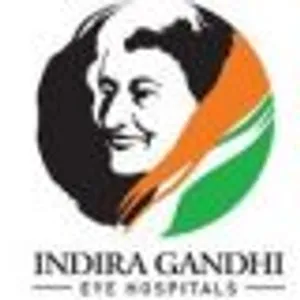Cataract surgery is a transformative procedure that enhances vision by replacing the eye's cloudy lens with a clear, artificial one. Proper care after surgery, especially regarding diet, is essential for a smooth recovery. Understanding what to eat after cataract surgery can make a significant difference in the healing process and support long-term eye health. If you’ve recently had cataract surgery, this article provides essential dietary guidance to help your recovery go smoothly. Following a nutritious diet rich in healing nutrients can be just as important as medications and post-surgery eye care.
Why Diet Matters After Cataract Surgery
A balanced diet plays a crucial role in recovery after cataract surgery. The right foods support the eye’s natural healing process, minimize the risk of complications, and promote overall well-being. Essential nutrients like vitamins A, C, E, and minerals like zinc help reduce inflammation, promote tissue repair, and protect against oxidative stress. By focusing on nutrient-dense foods, patients can experience a more comfortable and faster recovery.
Nutrients to Prioritize in Your Diet
1. Vitamin A - Often referred to as the "eye vitamin," vitamin A is crucial for eye health and maintaining the protective layer of the eye (cornea). Foods rich in beta-carotene, such as carrots and sweet potatoes, are excellent sources, providing essential support for your vision and healing post-surgery.
2. Vitamin C - This vitamin acts as a powerful antioxidant and is necessary for tissue repair. Including vitamin C-rich foods like oranges, bell peppers, and strawberries in your diet will support collagen synthesis and boost the immune system, aiding in recovery.
3. Vitamin E - Known for its antioxidant properties, vitamin E helps protect cells from damage, which is particularly helpful after eye surgery. Nuts like almonds and sunflower seeds are excellent sources of vitamin E and are easy to incorporate into meals and snacks.
4. Zinc - Zinc is vital for immune function, vitamin A metabolism, and wound healing. Foods high in zinc, such as oysters, pumpkin seeds, and lentils, are beneficial for those recovering from cataract surgery, as they help support night vision and overall eye health.
5. Omega-3 Fatty Acids - Omega-3s reduce inflammation and relieve dry eye symptoms, which are common after surgery. Adding fatty fish such as salmon, sardines, and mackerel to your diet can enhance healing.
Top Foods to Eat After Cataract Surgery
Including eye-friendly foods can make recovery smoother. Here are some specific foods that are especially helpful for healing and promoting eye health:
1. Leafy Greens - Spinach, kale, and collard greens are loaded with essential nutrients such as lutein and zeaxanthin, which are antioxidants known to help the eyes recover and stay healthy. These leafy greens also contain vitamins C and E, providing a powerful blend of nutrients that work together to support eye health after surgery.
2. Berries - Blueberries, strawberries, and blackberries are packed with antioxidants that reduce oxidative stress, which is essential for recovery. Berries also help stabilize blood sugar, which is important because high blood sugar can lead to increased inflammation, slowing down healing.
3. Nuts and Seeds - Almonds, walnuts, flaxseeds, and chia seeds are rich in healthy fats, particularly omega-3 fatty acids, which help reduce inflammation throughout the body. This is especially important after surgery when inflammation can hinder recovery. Additionally, the fiber in nuts and seeds helps regulate digestion, keeping the digestive system healthy during recovery.
4. Fatty Fish - Including salmon, sardines, and mackerel in your diet provides essential omega-3s, helping prevent dry eyes.
5. Whole Grains - Foods like oats, quinoa, and brown rice support stable blood sugar levels, promoting eye health. Whole grains are also high in fiber, which aids in digestion and helps the body absorb nutrients needed for healing.
6. Eggs - Eggs are rich in lutein, zeaxanthin, and vitamin E, all of which help prevent eye issues in the future. The nutrients in eggs make them a great addition to meals, especially for those aiming to boost eye health after cataract surgery.
7. Orange Vegetables - Carrots, pumpkins, and sweet potatoes are packed with beta-carotene, which the body converts into vitamin A. This vitamin is essential for good vision and keeping the cornea healthy, promoting quicker recovery after surgery.
Sample Diet Plan for Post-Cataract Surgery Recovery
Here’s a balanced meal plan to ensure proper nutrition during recovery:
Breakfast: Greek yogurt with blueberries, chia seeds, and a sprinkle of almonds, providing antioxidants, probiotics, and healthy fats.
Morning Snack: An orange and a handful of almonds or walnuts, offering vitamin C and omega-3s.
Lunch: Grilled chicken salad with spinach, kale, cherry tomatoes, and a light vinaigrette, providing lean protein and essential nutrients.
Afternoon Snack: Carrot sticks with hummus for a boost of beta-carotene and fiber.
Dinner: Baked salmon with steamed broccoli and quinoa, offering omega-3s, fiber, and protein.
Evening Snack: Apple slices with almond butter, a nutrient-dense snack rich in healthy fats and fiber.
Foods to Avoid After Cataract Surgery
While there are foods that help recovery, certain foods may hinder healing and should be avoided during the post-surgery period. Here’s what to avoid:
1. Sugary Foods - High-sugar foods like sweets, pastries, and sugary drinks can spike blood sugar levels, leading to inflammation. This can slow down the body’s healing response, making it essential to limit sugar intake after surgery.
2. Fried and Processed Foods - Fried foods and processed items contain unhealthy fats and preservatives that can increase inflammation in the body. Avoiding items like chips, fried snacks, and fast food helps maintain a healthy recovery.
3. Red Meat - While moderate amounts may not be harmful, red meat has been associated with increased inflammation, especially if consumed in large amounts. Opt for lean meats or plant-based proteins to support faster recovery.
4. Caffeine and Alcohol - Both caffeine and alcohol can lead to dehydration, which can dry out the eyes. Avoid alcohol for at least a week post-surgery and limit caffeine intake to help your body stay hydrated.
5. Salty Foods - Excessive salt intake can cause water retention and may increase eye pressure. Opt for fresh foods and limit processed snacks, which are often high in sodium.
FAQs on What to Eat After Cataract Surgery
1. How soon can I start eating after cataract surgery?
Generally, patients can eat light meals soon after surgery as long as they feel comfortable. Consider starting with simple, easily digestible foods and stay hydrated.
2. Are there specific foods to avoid on the day of surgery?
Yes, avoid caffeine, alcohol, and heavy, spicy foods on the day of surgery. Stick to light, nourishing meals like soups, crackers, and toast.
3. Can I take supplements instead of focusing on diet?
While supplements may be beneficial for some, a balanced diet is generally more effective for healing and overall health. Supplements like vitamin C, omega-3s, and zinc may be helpful but consult your doctor before starting them.
4. How long should I follow a strict post-surgery diet?
Maintaining a healthy diet is always beneficial, but for the first month post-surgery, aim to stick to a diet rich in healing nutrients. After that, you can transition to a balanced diet that supports eye health and overall wellness.
5. Are there any lifestyle changes that can support eye health?
Yes, along with diet, staying hydrated, avoiding smoking, limiting alcohol, and wearing sunglasses outdoors can help protect and support your eyes after surgery.
If you’ve undergone cataract surgery in Gurgaon or anywhere else, understanding what to eat can be essential for a smooth recovery. With the right foods, plenty of hydration, and a balanced lifestyle, you can maximize the success of your surgery and enjoy healthy vision for years to come.



